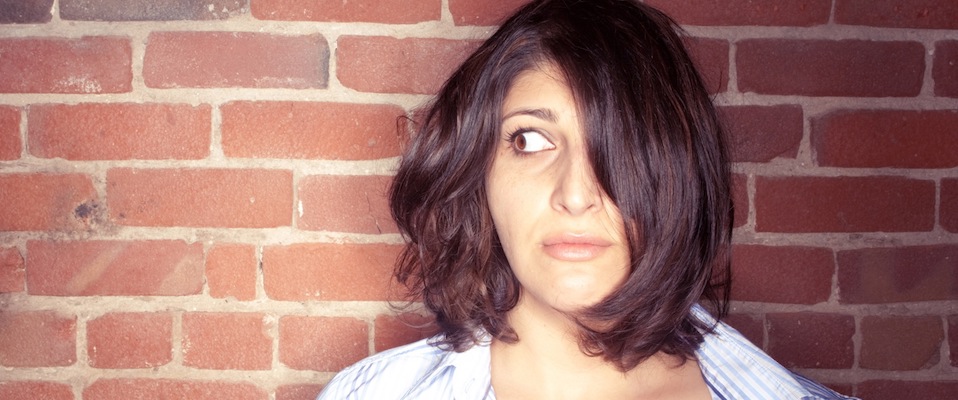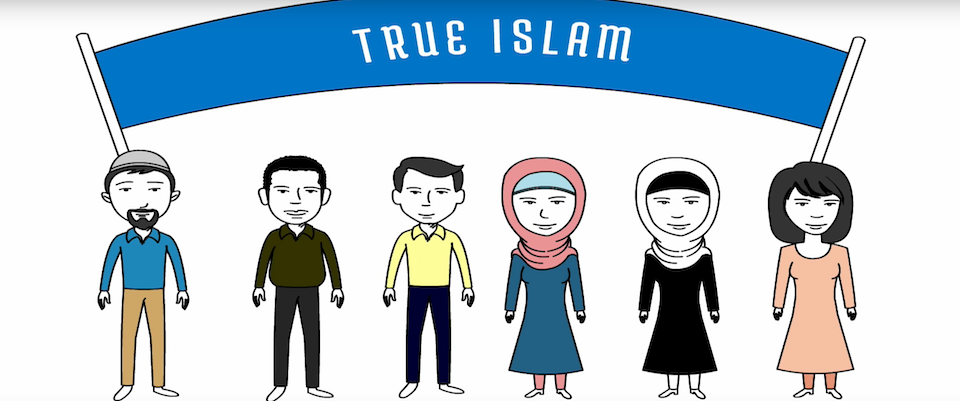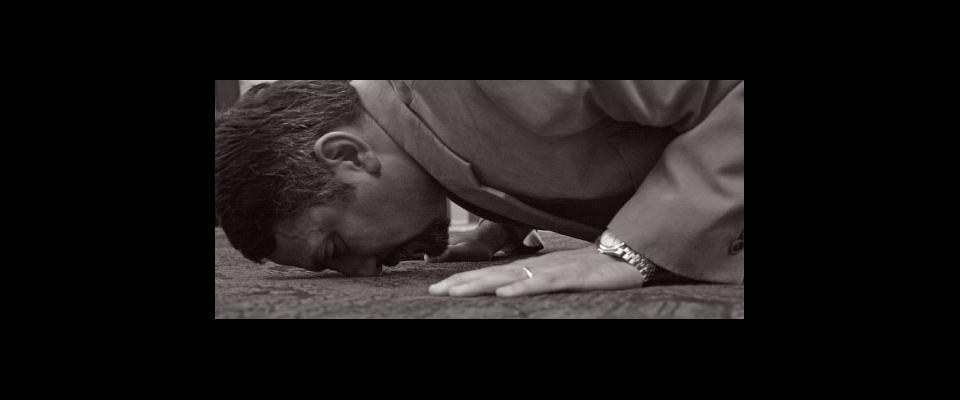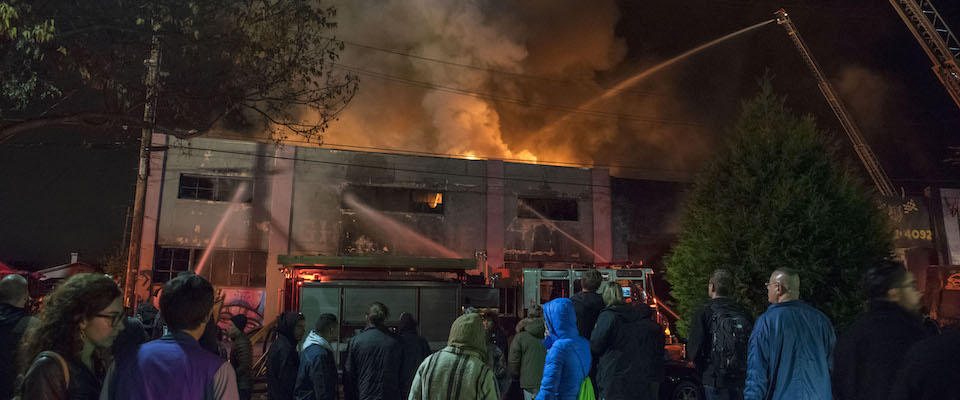Comedian and Cal grad Zahra Noorbakhsh is a self-described “pork-eating, alcohol-drinking, premarital sex-having, bisexual feminist Iranian Shi’a Muslim.” That is, she doesn’t fit neatly into any one box.
As a performer, Noorbakhsh embraces this complex narrative. By telling her story as she sees it, not as it might be perceived by others, she’s trying to create a comedy world that is more open-minded and inclusive of diverse experiences. As a Muslim person of color, however, speaking out can be risky. In 2017, she almost cancelled early performances of her newest show, On Behalf of All Muslims: A Comedy Special, because Islamic centers were being set on fire.
When she began writing On Behalf of All Muslims, Obama was still president. She developed her show in pieces as she waited for a grant to process, and by the time it did—a year later—Trump had been elected and the mosque shooting had shaken Quebec City. Around the same time, Noorbakhsh received a surge of requests to do “we’re just like you” comedy to try to bridge the gap between the Muslim and American cultures.
“I didn’t see anybody like me out there performing, so I thought it wasn’t possible. I’m efficient, so I just put that thought away,” recalls Noorbakhsh.
“This ‘we’re just like you’ narrative really is we’re white just like you,” says Noorbakhsh. “People see comedy as a solution. But I’ll do stand-up and one-person shows, and afterwards people will come up to me to say, ‘Well, you’re one of the good Muslims’. It didn’t change their perception of Muslims as a whole, they’re still functioning under the idea that there are bad ones out there they have to keep an eye out for. What’s broken is this whole simplistic idea of the bad guys.”
To challenge this idea, Noorbakhsh has written and starred in a couple of one-woman shows, originally directed by W. Kamau Bell. They include Hijab and Hammerpants (2015), which is about wearing a hijab at Blockbuster, and All Atheists Are Muslim (2011), which is about her parents learning that she’s moving in with her white, atheist boyfriend.
For Noorbakhsh, family is at the heart of her comedy. Growing up, she and her family moved frequently, and she was always on the lookout to cut off any sources of potential friction before they began.
“My mom wore a hijab during the Iran hostage crisis and the Iran-Iraq war, and it painted us as a target,” she says. “It was very clear to me that based off of how affable and cute I was, they were nicer to her.” Every time they moved, she would first go around to all the new neighbors and describe her family to them, in her own words, to make sure they made a good first impression.
Noorbakhsh also learned to diffuse tension within her own family. She’s been doing impressions of her father since she was 10, initially as a reaction to the way he used to push her to work harder—by teasing her. And being able to make her usually austere father laugh was a big deal, which she says “felt like a superpower.”
In her podcast “Good Muslim, Bad Muslim,” she talks about the simplification of “good” and “bad,” and how assimilating to American culture means you’re either one or the other.
This Noorbakhsh carried with her to Cal where she was known for her dad jokes. So when a friend coordinating the Iranian Student Cultural Organization (ISCO) talent show asked her to gather all her dad stories into a 15-minute set, she did. Her performance was a hit with the packed room of college students, parents, and even her own father.
“My dad was in the crowd and he was laughing and crying and the spotlight was warm, and I thought, ‘This is what I want to do,’” recalls Noorbakhsh.
Though making people laugh was her thing long before the ISCO talent show, she hadn’t considered doing it professionally until then. She wanted to be a writer and performer, but at school initially chose to study psychology (before switching to English literature then comparative literature, and finally theater and performance studies).
“I didn’t see anybody like me out there performing, so I thought it wasn’t possible. I’m efficient, so I just put that thought away,” she says.
After the talent show, she reconsidered. She tried the same act at an open mic night at the now defunct Brainwash, the San Francisco laundromat-cafe-comedy club where Ali Wong—the very same night, in fact—and many other comedians got their start. And she bombed.
“I didn’t really have punchlines. I mostly had a collection of funny things that my dad had said or funny things about being Persian. It didn’t work because they were all waiting for punchlines and all they were getting was set-up,” says Noorbakhsh. In contrast, “For the Persian crowd at the talent show, punctuating those experiences was the punchline and it was kind of like a celebration.”
Needless to say, she’s done a lot of stand-up (with punchlines) and shows since then. And for the last three years, when she’s not onstage, Noorbakhsh and activist Tanzila ‘Taz’ Ahmed have been co-hosting the podcast “Good Muslim, Bad Muslim,” which grew out of conversations about what it means to be a “good Muslim.” They talk about the simplification of “good” and “bad,” and how assimilating to American culture means you’re either one or the other. And even if Americans consider you “good,” as a Muslim person of color, you’re still suspect.
“What’s funny to one group of people might not be funny to everyone. Just like not everybody is made tense by the same things, so comedy can’t be about alleviating tension.”
Noorbakhsh has known she’s bisexual since she was 14. As she tells it, “I remember when I was a teenager and I was watching the soap opera One Life to Live. There was this love triangle between Victoria Buchanan, Bo, and Cassie. And I was like ‘Oh my God, it would be so hot if they would just all have sex with each other. Why don’t they have sex with each other? That would be so hot.’ And it ate at me so much I drew stick figure porn.”
But Noorbakhsh wasn’t always so open about her sexuality. It wasn’t until a few years ago, during a particularly poignant episode of her podcast, that she felt compelled to share her secret with her listeners. While discussing the June 2016 Orlando gay nightclub shooting, she came out publicly to “counter the media coverage that set up Muslim people and LGBTQ people as two distinct groups” and to challenge the homophobia in many Muslim communities.
A few months later, at the age of 36 and already married to a man, she finally came out to her parents as well. In her essay in Bitch, she describes being nervous about how her family would react to her announcement, but after some buildup (and teasing on their part) they were supportive. When she told them that a lot of people think you can’t be gay and Muslim, her mom was indignant, rolling her eyes and saying, “Nobody stands between you and Allah. Remember that. THAT is Islam! Jesus walked on water, but Allah gave a young, illiterate orphaned boy named Muhammed a book and said, ‘Read.’ Self-discovery made a prophet! Not a bunch of self-righteous jerks.” Her dad was more succinct. “Yeah, that’s bullshit, man. Maybe this time, people will hear it.”
Right now, Noorbakhsh is a senior fellow of stand-up comedy for social change at Pop Culture Collaborative, an impact hub focused on refugees and people of color. There she’s examining the use of stereotypes and the straight white male narrative archetype—a lens through which comedy is typically viewed. And by which comedians are judged.

“Jerry Seinfeld, Robert McKee and Chris Rock have talked endlessly about how if it’s funny, it’s funny. It’s an antiquated template for stand-up comedy. What’s funny to one group of people might not be funny to everyone. Just like not everybody is made tense by the same things, so comedy can’t be about alleviating tension. So how are we going to judge comedy? The same way we judge a novel or a play—you want a diverse group of candidates and a committee thinking about it,” says Noorbakhsh.
Stand-up’s current format builds off stereotypes and the assumption of a common perspective. When you’re Other, Noorbakhsh says, extra exposition is required to make the jokes land. And people with less familiar narratives are expected to do the extra work of educating their audiences.
“The further a comedian is from the dominant cultural narrative (aka the hetero, cis-white male experience) then the more world-building they have to get in as part of their setup, which can make a joke feel longer. So, a lot of people of color and LGBTQ comedians end up performing one-person shows where audiences appreciate a narrative arc and depth of character,” she says.
By including the words “comedy special” in the title of her show, Noorbakhsh is actively trying to push back against those expectations, just like comedians Hasan Minhaj and Hannah Gadsby did.
“It was a landmark moment when the Peabody Awards gave Hasan Minhaj the award for Homecoming King as a comedy special and not as a one-person show. It was also a game-changer for Netflix to label Hannah Gadsby’s Nannette as a comedy special and not a drama. It serves to change our expectations of what is possible in a comedy special.”
Noorbakhsh’s current projects include developing a “new language” for critiquing comedy and thinking about new development models for stand-up that don’t involve the bar scene. Right now, she thinks theater is the most obvious alternative. In August she finished a two-week run of her in-progress stand-up comedy special at the Brava Theater, which will officially premiere in Spring 2019.
“The title might change but it will be my stand-up comedy special,” Noorbakhsh says. “I will not have developed it at a bar, and we’ll see what happens.”





















